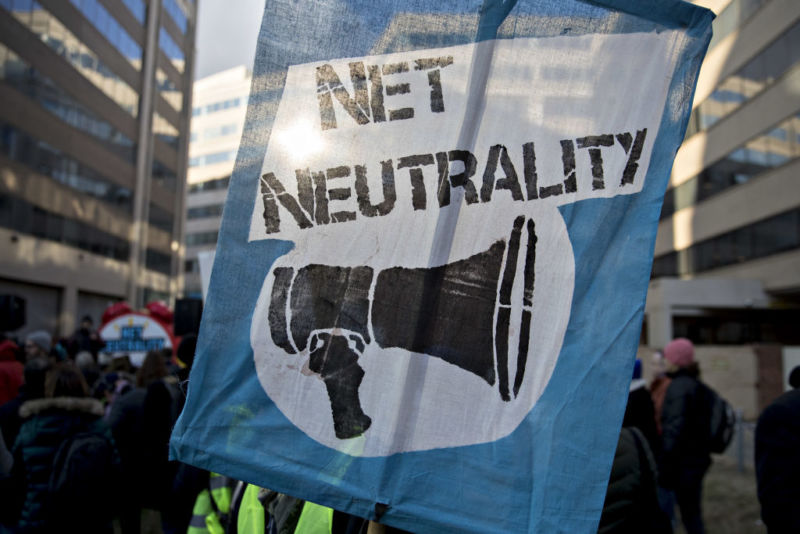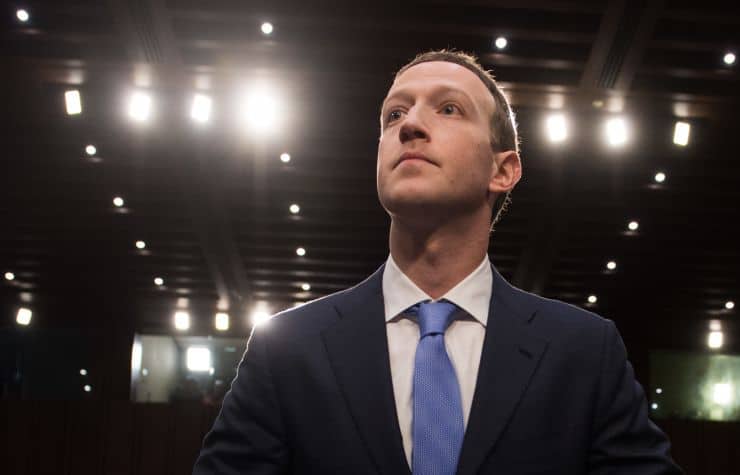
A Federal Communications Commission lawyer faced a skeptical panel of judges today as the FCC defended its repeal of net neutrality rules and deregulation of the broadband industry.
FCC General Counsel Thomas Johnson struggled to explain why broadband shouldn’t be considered a telecommunications service, and struggled to explain the FCC’s failure to protect public safety agencies from Internet providers blocking or slowing down content.
Oral arguments were held today in the case, which is being decided by a three-judge panel of the US Court of Appeals for the District of Columbia Circuit. Throttling of firefighters’ data plans played a major role in today’s oral arguments.
Of the three judges, Circuit Judge Patricia Millett expressed the most skepticism of Johnson’s arguments, repeatedly challenging the FCC’s definition of broadband and its disregard for arguments made by public safety agencies. She also questioned the FCC’s claim that the net neutrality rules harmed broadband investment. Circuit Judge Robert Wilkins also expressed some skepticism of FCC arguments, while Senior Circuit Judge Stephen Williams seemed more amenable to FCC arguments. (Williams previously dissented in part from a 2016 ruling that upheld the Obama-era net neutrality rules. Now the same court is considering FCC Chairman Ajit Pai’s repeal of those rules.)
The lawsuit seeking to overturn the net neutrality repeal was filed by more than three dozen entities, including state attorneys general, consumer advocacy groups, and tech companies such as Mozilla and Vimeo.
Is broadband telecommunications?
In order to deregulate broadband, the FCC argued that broadband itself isn’t a telecommunications service and is instead an information service. Under US law, telecommunications is defined as “the transmission, between or among points specified by the user, of information of the user’s choosing, without change in the form or content of the information as sent and received.”
By contrast, US law says an information service is “the offering of a capability for generating, acquiring, storing, transforming, processing, retrieving, utilizing, or making available information via telecommunications.” It’s up to the FCC to determine whether something is a telecommunications or information service, but FCC decisions can be overruled by a court if they aren’t justified properly.
Millett pointed out the importance of the “via telecommunications” phrase in the information service definition, which makes it clear that an information service rides on top of a telecommunications network. For broadband itself to be an information service, ISPs have to offer something more than a pure transmission service.
Johnson said that broadband is an information service because Internet providers offer DNS (Domain Name System) services and caching as part of the broadband package. DNS and caching “are determinative here” because they allow broadband users to perform all the functions listed in the definition of an information service (e.g. acquiring, storing, and processing information), he argued.
“DNS, for example, it generates queries to other servers, it stores and retrieves domain name information, it translates domain name information that is provided by the user into an IP address and back,” he said. “Caching stores popular content at local servers that users can access, so it satisfies the storage and retrieval functionalities as well.”
But the DNS/caching argument didn’t seem to satisfy Millett. She repeatedly asked Johnson why the FCC still considers telephone service to be telecommunications, despite ruling that broadband isn’t. “I’m having a lot of trouble understanding” how the FCC’s description of broadband wouldn’t also apply to telephone service, she said.
Like broadband, “telephone service is constantly used to acquire information and share information,” Millett said. She used the filling of medical prescriptions as an example. Someone can call a pharmacy over the phone and use their voice or push a series of buttons to get a prescription filled, just as they can get a prescription filled by going to a doctor’s website, she said. “It seems to be the exact same functionality, but one is voice and one is typing,” she said.
Millett also noted that people who are hard of hearing use telephone services with special technology that makes it possible for them to communicate. “That’s a telecommunications aspect of phones,” she said. But the existence of this technology that rides over the phone network hasn’t caused the FCC to decide that telephone service isn’t telecommunications.
Johnson argued that DNS and caching are “functionally integrated, vital information-processing components of broadband that distinguish it from traditional telephone service.”
Throttling of firefighters
Verizon Wireless’ throttling of an unlimited data plan used by Santa Clara County firefighters last year played a role in today’s oral arguments. Santa Clara County Counsel Danielle Goldstein told judges that the FCC failed to address the potential impact that blocking and throttling could have on public safety.
Blocking, throttling, or any sort of paid prioritization that causes other traffic to be delivered slower than prioritized traffic could affect both public safety agencies and consumers who rely on broadband to get emergency messages, she noted. As an example, she said her county’s public health website provides information about vaccine stock in case of influenza outbreaks.
US law requires the FCC to consider public safety impacts, Goldstein said. “The FCC can’t fail to address public safety, especially in an order that purports to preempt state and local government’s ability to fill that regulatory gap,” she said, noting that the FCC is attempting to preempt state and local net neutrality laws.
After-the-fact remedies aren’t sufficient for public safety, because such remedies would come after emergencies causing death, she said.
Millett grilled Johnson on the public safety topic. “Post-hoc remedies don’t work in the public safety context, and unless I missed it, that was not addressed anywhere in the [repeal] order,” Millett said.
Johnson responded that “the burden ought to be on them [the public safety agencies] to show concrete evidence of harm.”
Millett cut in, saying, “why is the burden on them? The statute repeats again and again that public safety is an important goal, you had comments [from the public] expressing concerns, a lot of them. It seems like you have a statutory obligation, you had a lot of comments, a serious issue that should have been addressed by the commission in the order. That’s not a burden on them.”
Judge Wilkins addressed the public safety and preemption topics together, posing a hypothetical in which New York issues a state law that says ISPs can’t throttle service to firefighters.
“Your order would seem to prohibit that [hypothetical law] because your order is written very broadly,” Wilkins said. “Doesn’t it say that basically all state and local regulations with respect to broadband are preempted?”
Johnson said the FCC is not trying to preempt traditional public safety functions carried out by states, and said whether a specific state law is preempted “would depend on the facts of that particular case.” He didn’t give a specific answer to whether a state could prohibit throttling of firefighters’ Internet service.
The FCC still requires ISPs to disclose any blocking, throttling, and paid prioritization to consumers. Johnson argued that requiring public disclosures will prevent bad behavior, because the Federal Trade Commission can punish companies that deceive consumers.
But Millett asked how blocking or throttling could be considered deceptive if the ISP discloses it. Johnson conceded the point, saying, “if it’s fully disclosed, there wouldn’t be anything deceptive.”























